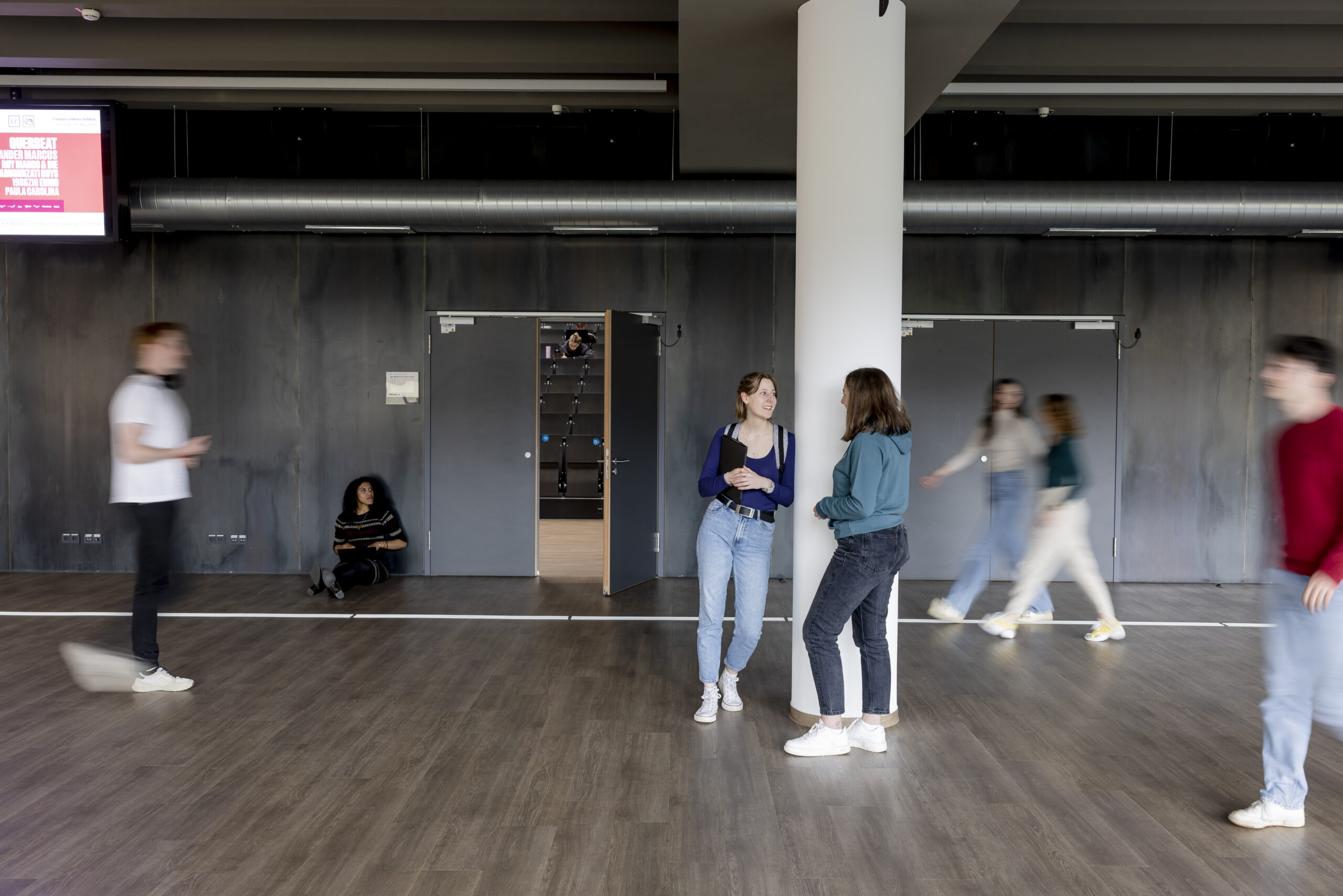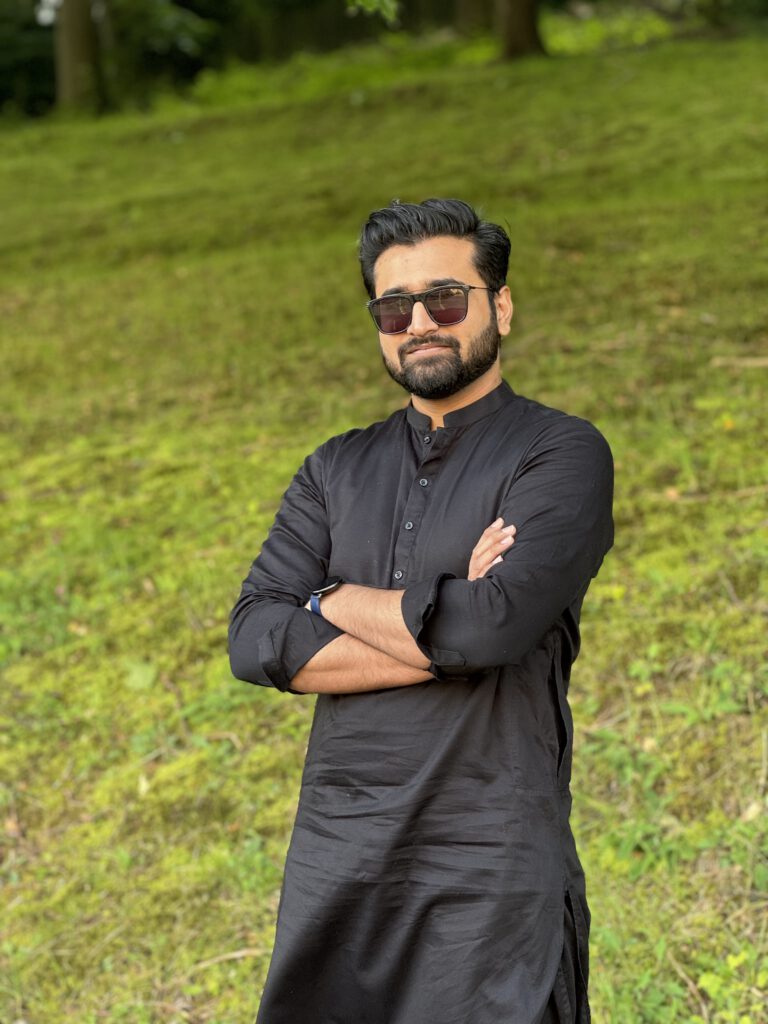
Master
Human computer interaction
Short information
| Restricted admission | Prescribed period of study | start |
| no | 4 semester | summer and winter semester |
Restricted admission
No, but application required
Application
01.10. – 31.10. (summer semester)
01.04. – 30.04. (winter semester)
Study Program
Our international master’s program in ‘Human-Computer Interaction’ is a four-semester, full-time study program for bachelor’s graduates. As IT permeates life and work, this program focuses on designing, implementing, and evaluating user-friendly and efficient software systems, emphasizing IT artifacts that support human practices.
Learn interaction techniques, interface design, user-centered processes, usability standards, and qualitative analysis. Enhance your studies with electives from business, informatics, media studies, law, cultural studies, and sociology. Benefit from our active research, linking theory with practice.
Join Germany’s oldest HCI master’s program, designed with leading international scientists.
Shape the future of IT and human interaction!

5 reasons to study Human Computer Interaction in Siegen
✓ Pioneering program
✓ International and Intercultural Focus
✓ Human-Centered Design Approach
✓ Integration of Research and Practice
✓ Interdisciplinary opportunities
Career prospects
Siegen’s HCI Master’s program offers various specialization opportunities through research projects and seminars. Graduates can pursue careers in interaction design, usability testing, UX consulting, and agile software project management. The program integrates students into research early, enabling them to publish and present at international conferences, enhancing their prospects in scientific careers worldwide.

Sohaib Bin Kamran says:
“...my experience has exceeded all expectations.”
Read more
Embarking on my journey at the University of Siegen to pursue a Master’s in Human Computer Interaction, I was eager to immerse myself in a field where technology and user-centric design converge. Now, in my second semester, I can confidently say that my experience has exceeded all expectations. This program is a perfect blend of theory, practice, and innovation, set in a vibrant interdisciplinary environment that is as challenging as it is rewarding.
From the foundational aspects of Human Computer Interaction to the cutting-edge discussions in Ubiquitous Computing and the Augmenting Possibilities of VR, each course has been a deep dive into the critical facets of how users interact with technology. Courses like Usable Security and User Experience Design have not only equipped me with the skills to design secure, user-friendly systems but have also broadened my perspective on how technology interfaces with daily life.
The truly unique aspect of this program is its approach to integrating diverse fields such as Psychology and the Ecological Use of Social Robots, providing a holistic view of technological impact. Participatory and Creative Methods for Smart Living, alongside the Practical Seminar on Organizational and Technology Development, have offered me invaluable hands-on experiences, shaping me into a well-rounded professional ready to contribute meaningfully to the HCI community.
Studying in the culturally rich city of Karachi, Pakistan, and now at the University of Siegen, I am not just learning—I am evolving. I am grateful to be part of an academic community where creativity and practicality meet at the crossroads of user interaction. I look forward to continuing my journey here, pushing the boundaries of what’s possible in human-computer interaction.
Admission requirements
The HCI programme is aimed at graduates with a relevant Bachelor degree in Business Information Systems, Computer Science, Business Administration, Design, Psychology or Sociology or a comparable programme, with a relevant share of at least 60 credit points from the above-mentioned subject areas.
In addition, the Bachelor’s degree must have a grade of 2.5 or better (German GPA system).
The following certificates are recognized for applicants who have not acquired their study qualification at an exclusively English-speaking institution or who have learnt English as their mother tongue:
- TOEFL (Test of English as a foreign language) iBT (internet based test) Test with a score of at least 94 points;
- IELTS test with a score of at least 6.5;
- Cambridge B2 First, Grade B (173+ points);
- PTE Academic with a minimum score of 58 points;
- A certificate attesting that English language skills are at level B2 of the Common European Framework of Reference for Languages (CEFR).
Your proof of language proficiency should not be older than 3 years!
The current examination regulations are valid.
Study organization
Examination regulations/degree plan/module manuals/internship rules
Examination regulations (POs) specify the basic structures of a degree program (e.g. admission requirements and contents to be studied). Students are automatically subject to the current version of their PO when they matriculate for their first subject-related semester. This means that even if the PO changes during their studies, the original version according to which they matriculated will remain valid (provided that the PO does not expire).
The respective degree plan is the recommended example progress of the studies in individual subjects and is part of a PO.
Supplementary provisions and details for any module to be studied can be found in the module manually (e.g. requirements for taking a written test or content-related information on the modules/events, ...).
The Internship Rules define the conditions under which the required or optional internships must be completed.
We recommend at least looking at the study schedule for your degree program before the lecture time starts, to ensure that you know which modules are intended for the start of your studies.

Advice and Contact
Make an appointment at:
info.studienberatung@zsb.uni-siegen.de
or phone: 0271 740-2712
(Monday – Thursday: 9 a.m. - 4 p.m. / Friday: 9 a.m. – 12 noon)